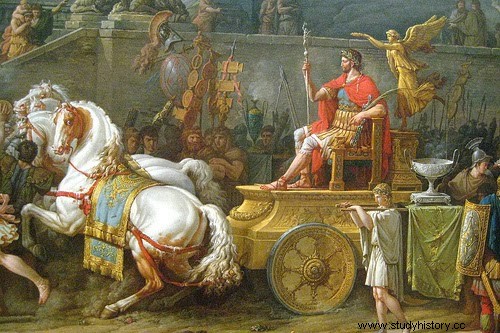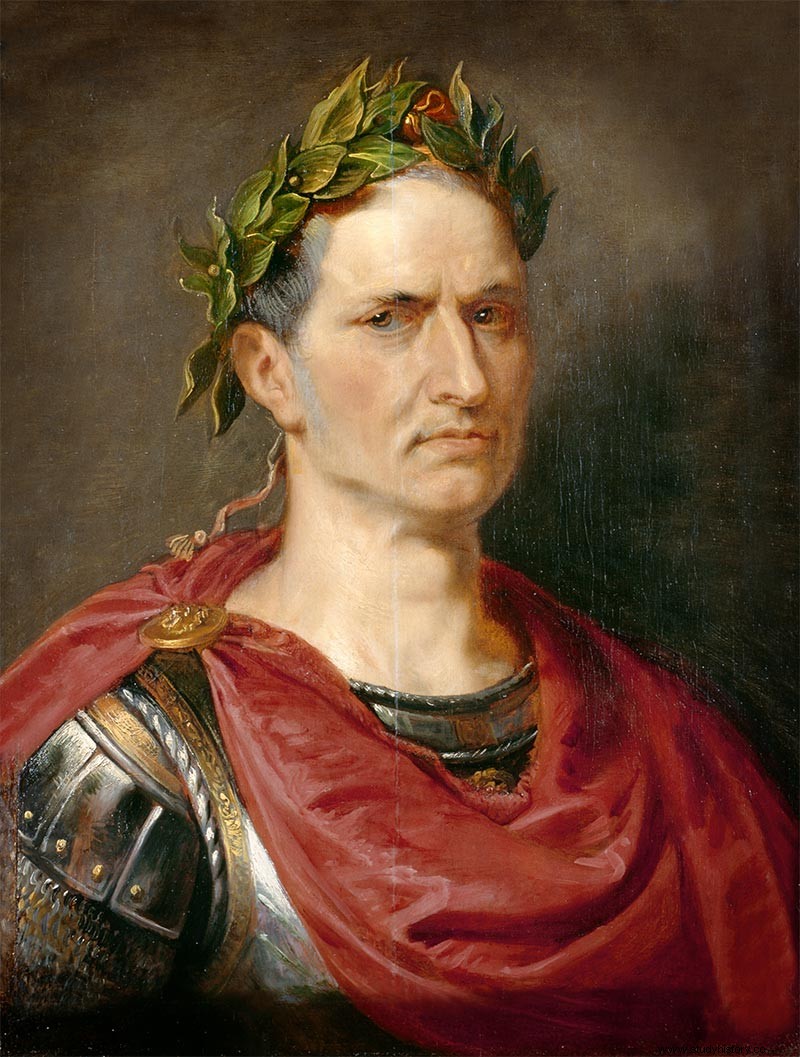Julius Caesar is the most famous character in Rome and one of the best known in all of history. Military and brilliant politician, he achieved significant achievements in both fields, but some legends more typical of fantasy than reality have also originated around his figure, which the popular imagination has been accepting without question.
The caesarean section
For a long time, the origin of the term caesarean section was attributed to Julius Caesar for having been the first to be born by this method. For better or worse, it is not true. As we all know, caesarean section is a type of intervention in which a surgical incision is made in the abdomen and uterus to extract the baby, usually due to problems during delivery or by mutual agreement between the doctor and the future mother. This method was already known in Rome, but Julius Caesar's mother did not undergo a caesarean section... because it was only used in cases where the woman in labor had died, and Aurelia, his mother, died when Julius Caesar was 45 years old . If the delivery itself already posed a risk for the mother, performing a surgical intervention at this time, with the possible and frequent infections, posed a greater risk.

The triumphal crown
The triumph was a ceremony to celebrate the success of a military campaign abroad. On that day, the victorious general wore a laurel wreath (triumphal crown) and paraded on a chariot through the streets of Rome with his unarmed army, prisoners and spoils of war. Julius Caesar, after entering triumphant from his campaign in Gaul, asked the Senate for permission to wear it permanently. As on the day of triumph / parade they were treated as kings, almost divinities, it was thought that Julius Caesar's request had to do with his airs of greatness, his almost deification. And I'm not saying that he didn't have them, that he did, but Julius Caesar's motives were more earthly:he had a huge complex about his baldness, and in this way he hid it. By the way, the Senate agreed to this proposal and that is why in many representations "laureate" appears.

Emperor
Too many times he is referred to as emperor, but he never was. He proclaimed himself dictator, a position included in the legislation of the Republic without the connotations of today. To avoid the abuses of the times of the monarchy, during the Republic it was decided to appoint two consuls, the magistrate of higher rank, in addition to providing that each one had a veto over the decisions of the other or that they governed only for one year, but the Senate, in certain moments of urgency and crisis, could hand over all power to a single person for a short period of time (normally one year). Julius Caesar went a little further:he proclaimed himself dictator for 10 years, something that, logically, was interpreted as meaning that he wanted to cling to power and rule as a king.
"You too Brutus, my son"
If “Alea iacta es ”It is one of the best known phrases of his, perhaps the best known is the one he said when he was assassinated by a group of conspirators in the name of the Republic:“ You too, Brutus! ” or “You too Brutus, my son! ”. With a question or with admiration… well, neither with a question, nor with admiration. According to popular belief, Julius Caesar refers to his godson, Brutus, the son of his mistress Servilia, astonished that she also participates in the plot against him and is one of his murderers. Julius Caesar was attacked by the conspirators, he tried to defend himself and wounded several of them, and after receiving 23 stab wounds, feeling like he was dying, he covered his head with his tunic in a last effort to maintain his dignity and fell at the foot of the pedestal of Pompey's statue. Nothing else... It's easier that his last words were Aggghhh , «I die » or some insult or expletive of the type «you are bastards «. The phrase that concerns us seems more typical of the last act of a drama or a tragedy to end in style with a phrase for posterity. And indeed it was, because the phrase was immortalized in the work Julius Caesar , the tragedy written by Shakespeare. And since then everyone has put it in his mouth.

